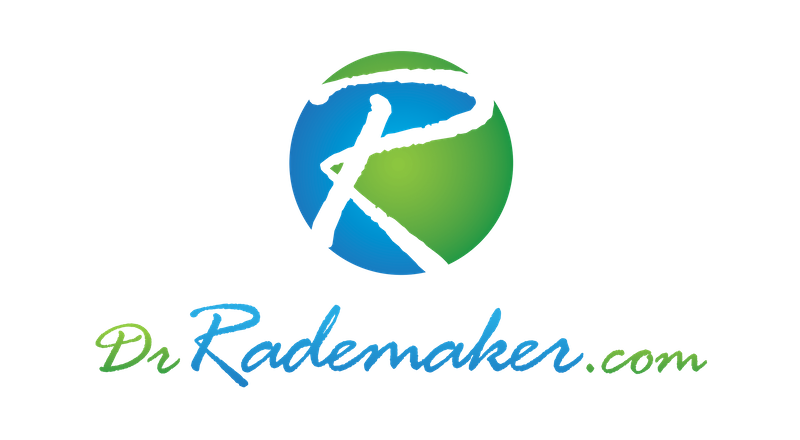Many are quick to criticize our health care system and they would be right but perhaps for the wrong reasons. Ultimately, if one does not get the health outcomes they want or need, this indeed is a failure. The question we must ask – what is the root cause of this!
Unfortunately, most will
have the wrong answer and simply accuse the doctors and big pharma of greed,
amongst other reasons.
The truth is – the ultimate responsibility of our health
must reside within us – not someone else. This is a fundamental flaw in our
thinking when for political reasons, the belief that health care is our right –
is misplaced. Of course it is our right but who must be ultimately responsible?
Without getting political on any of this and point the
finger at anyone – it is important to understand the emergence of conditions
that have brought us here today. The purpose for this is simply to give the
reader the opportunity to actually decide for themselves, why it is so
important to start taking ownership of their own health rather than making it
the fault of someone else.
I believe by sharing the actual facts as they are, based on
science or accurate recording, then we will be in a better position to make the
right decision rather than obfuscate the truth, be misdirected and think the
solution is elsewhere when it still resides within us.
The facts as I have been able to retrieve.
The problem starts in 1889 when the concept or residency was
first put forward. The purpose was to institute rigorous training standards and
requiring the residents (usually young men) to reside in the hospital. This
mentality is still mostly present, albeit less than before. In truth, perhaps
not unlike the training of a Navy Seal, doctors must be prepared to withstand
many difficult challenges they will face in helping their patients. This has
created a culture of perfectionism, denial, competition, criticism amongst
others. Part of the reward in the past has been high salaries and reputation,
which is clearly absent today. Doctors no longer get the automatic respect they
once experienced, and their salaries are often on par with skilled technicians.
So what are the conditions that doctors face today?
Here is the list
Physicians face daily challenges in providing the best
possible care for their patients
Increased stress
Increased workload
Excessive administrative duties without the proper training
or support
Constantly shifting EHR technology and programming requiring
too much time to update ones skill
Overextended and depleted emotional and physical resources
Feeling drained and used up
Fatigue
Excessive work hours
Frequent call duties
Comprehensive documentation in electronic medical records
Time spent at home on work related issues
Risk of malpractice
Loss of autonomy at work
Decreased control over work environment
inefficient use of time due to administrative duties
Loss of support from colleagues
Every hour spent on a patient requires 1 to 2 hours of administrative
requirements to include patient notes, coding, ordering labs, reviewing labs
without any compensation
Insufficient rewards
Limited interpersonal collaboration
Limited opportunities for advancement
Limited social support for physicians
Finally with the information age with digital recording and secret
monitoring programs evaluating physician performance while ignoring the human
element in clinical interactions and delivering (and the fear of) inappropriate
negative assessments based on inappropriate standards
While this list is not complete, the problems facing doctors
can be summarized as follows in 2 ways:
Work, personal and organization
And
Asymmetric rewards, loss of autonomy and cognitive scarcity
The work burden is excessive essentially limiting the
physicians ability to properly interact and manage each patient whereby the
sense of accomplishment is reduced, loss of the autonomy to choose how best to
take care of the patient, inefficiencies and losing out in life outside of work
and creating solid interpersonal relationships with their patients.
In the personal, the typical attributes and the culture engendered
in medicine includes the following elements:
Self criticism
Unhelpful coping strategies
Sleep deprivation
Over commitment
Perfectionism – they cant make a mistake
Idealism
Work life imbalance
Inadequate personal support
Denial
competition
And an environment that is constantly attacking the doctors choices
and
one that does not allow any type vulnerability
Organizational
Negative leadership behaviors
Work load expectations
Insufficient rewards
Secretive monitoring systems that are designed to catch a
doctor doing something wrong rather than finding ways to support doctors doing
their best
The asymmetric rewards refers to the idea that any negative
outcome is a doctors fault and people are on the look out for this while there
is little praise or acknowledgement for the lives saved. Doctors have the
difficult role to make life and death decisions based on insufficient data at
the time that later get scrutinized after additional data is acquired and the
doctor found to be at fault. Added to that the financial crisis many people
find themselves in today and the propensity of malpractice lawyers, it is often
an easy win to take someone to court when the claims are indeed false and frivolous.
It is this cloud under which doctors must work day in and day out.
Cognitive scarcity refers then to the increase in the difficulty
in making any decisions when all the various opportunistic elements come into
play. A study in India clearly demonstrated that farmers needing to make a
choice with the knowledge of the financial outcome made poorer decisions that those
who did not have the knowledge.
These opportunistic elements are a daily issue in particular
the fear of making that mistake and getting in trouble either with colleagues,
the institution or be sued.
When you add all of this up. It is no wonder that 50% of doctors
are suffering from burnout, ptsd, with high levels of depression and a rate of suicide
twice as high of the normal population.
Doctors do not have a way out and all of this leads to
depersonalization, exhaustion, feelings of low personal accomplishment,
increased incidence of executive dysfunction and depression. Doctors are quitting,
changing careers or reducing their hours. It is predicted that by 2025 the US will
be short of 90,000 doctors. This of course will result in poor patient outcomes
because of the lack of doctors. Adding to the fact that when a doctor is
suffering from depersonalization, the interaction with the patient is compromised
and treated more like a number than a human being. This impersonal experience leads
to poorer outcomes and trust in the patient.
There is no way out for the doctors and the institutional
approach completely misunderstands the overall situation thinking that
providing the doctors with tools for personal improvement will suffice.
The medical environment is hostile especially certain
specialties like emergency medicine, family practice, neurology and internal
medicine.
Unfortunately the answer can not be found within he institutional
realm since its typically the non medical personnel making the decision and who
do not understand what it is like to be responsible for the life and death of a
patient meanwhile having every part of their work and life be scrutinized under
a microscope with the aim to find something wrong and on top that sacrificing
much, little to no rewards and not having the personal quality of life
experienced by most other and even less qualified people.
Being a doctor is indeed choice and more than a job – it’s a
calling! Medicine is rapidly changing with the advent of new specialties like regenerative
medicine, biotechnology and the many entrepreneurs bringing new solutions
towards health optimization. The culture within which doctors are trained must
leave behind the 1889 idea of what it takes to be a doctor, rather give the
doctors all the support they need to thrive, make their own decision and incorporate
any of the innovations in health and wellness that have been proven to work –
rather than depending on institutional think to determine what a doctor can or
can not do.
Said differently, drugs and surgery address the symptom of
the problem – not the problem itself. The root cause must be determined and any
and all appropriate measures taken to reverse the condition in the most natural
and personalized manner. Drugs and surgery should only be used as last resort
or as a temporizing measure. All physicians can embrace a minimal amount of training
to better understand the components contributing to the root cause like poor
life style choices and deliver the information and the resources to their
clients to change. Additionally, doctors must begin to embrace the concept of
running the business of the business rather than being the indentured servant
to their own practice or the other forces governing the way they practice.
Business does not have to be hard and offering your clients solutions
for a fee for service will help their bottom line. Not only are patients
demanding these solutions, but they are also getting them from all the wrong places
and too often to their detriment. The doctor can easily assume a central role
in the client’s decision making as they explore different non-medical options
for their own personal wellness.
Doctors can easily take a stand for themselves and with just
a little coaching have a thriving business, the quality of life they always
dreamed of and most importantly, healthier patients.
Bart Rademaker MD
If you are a clinician and want to know more how you can
discover the type of independence and the ability to thrive in any economy, reach
out to me and we will get you started on the Master Class Fuel: Get back in the
driver seat of your practice!

